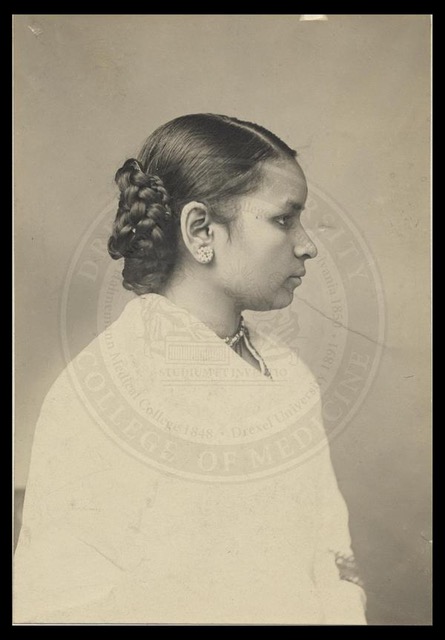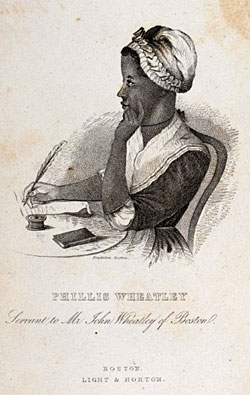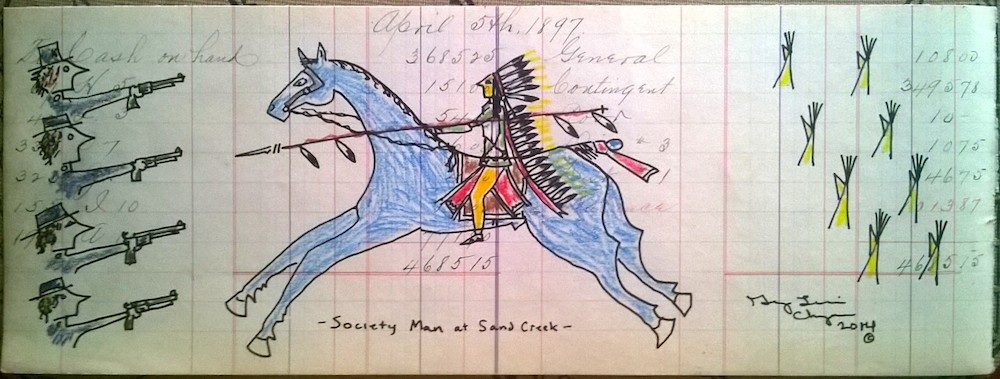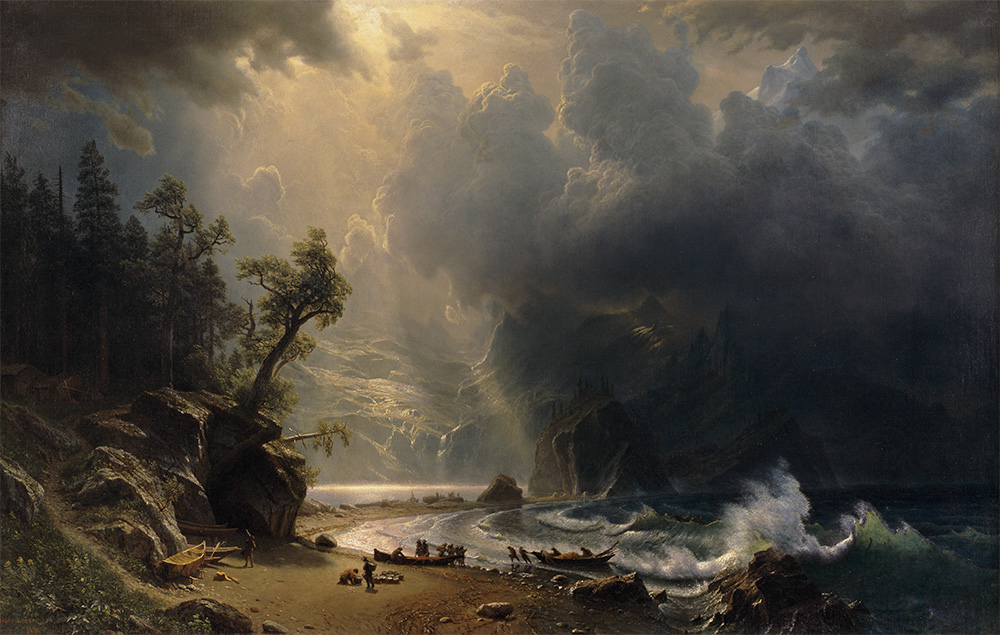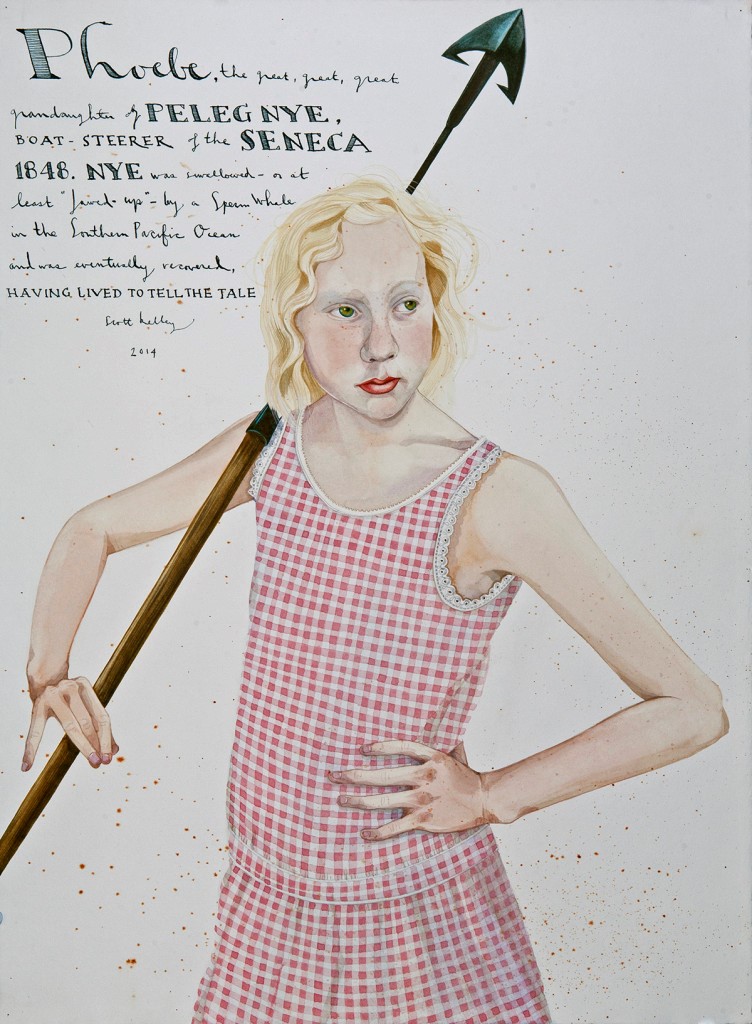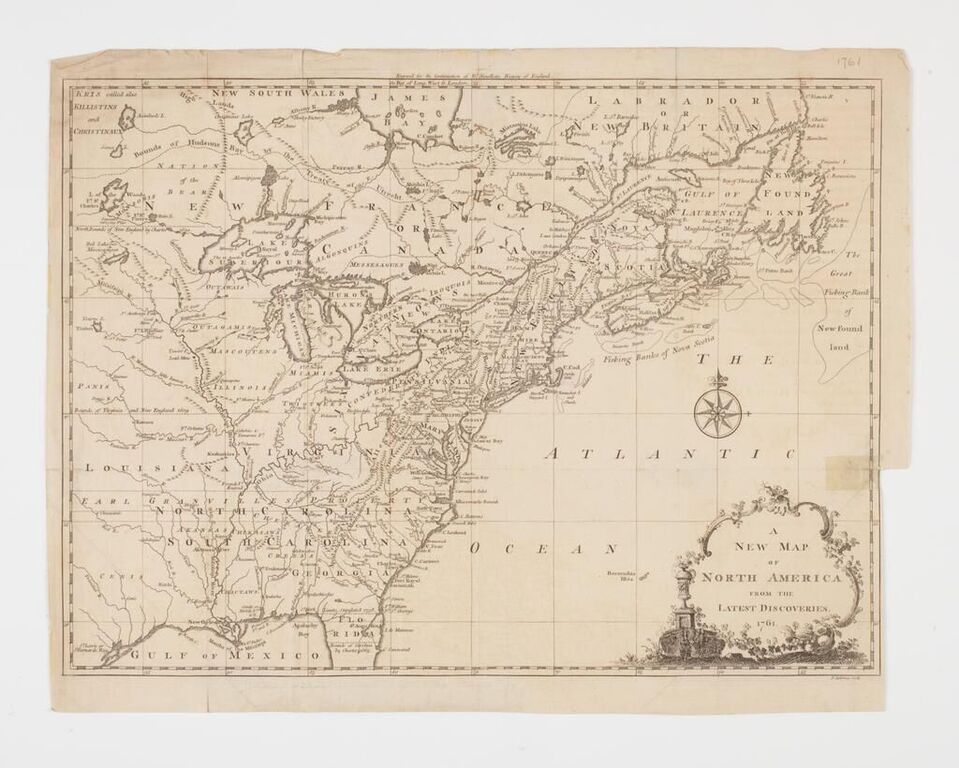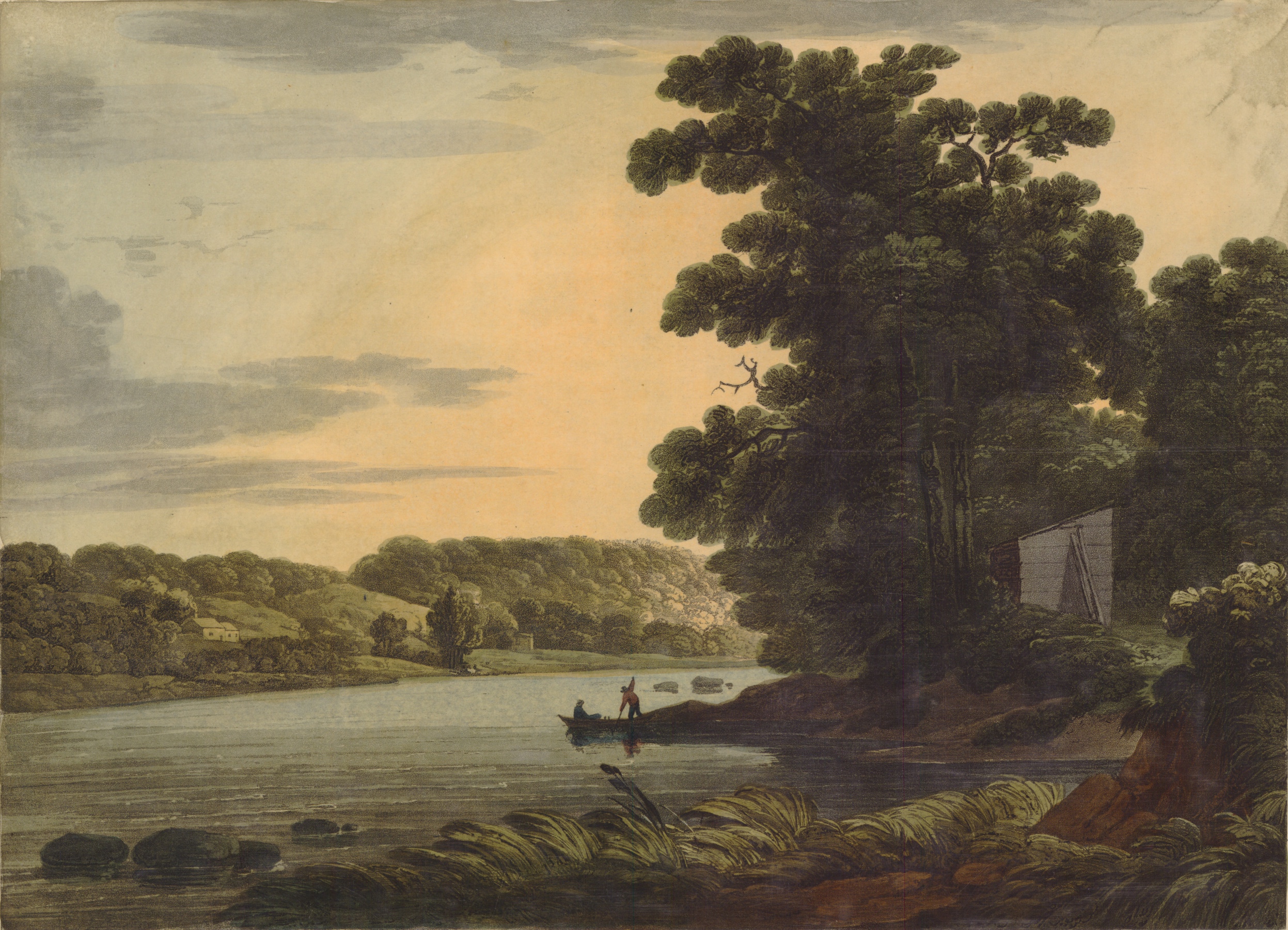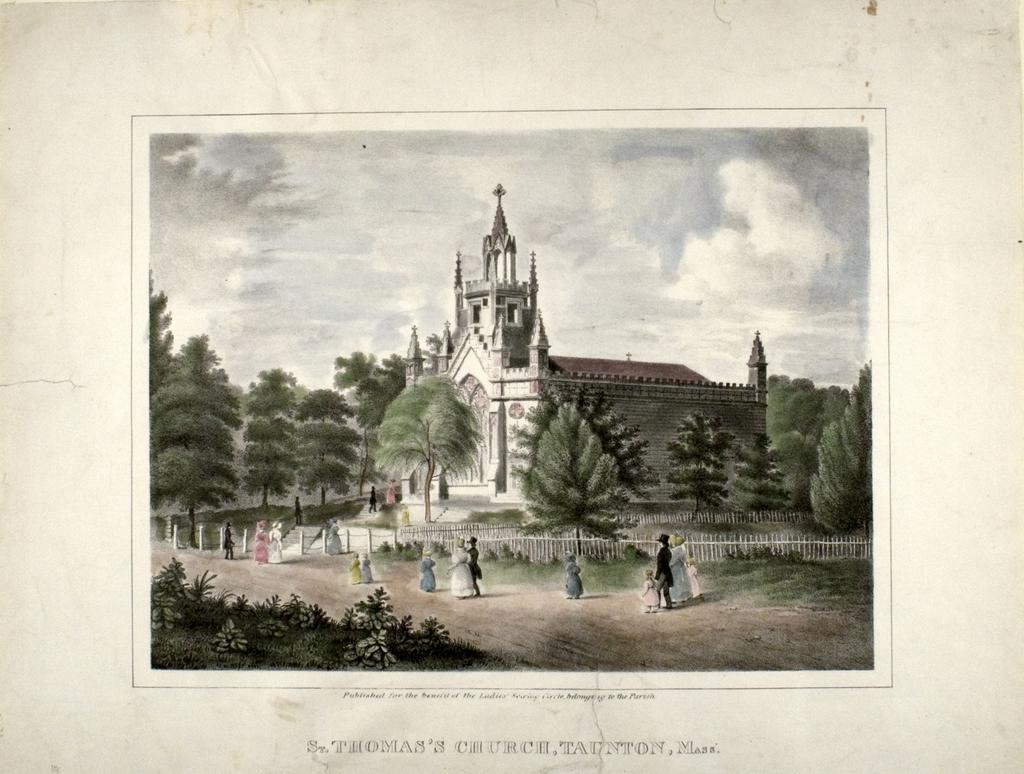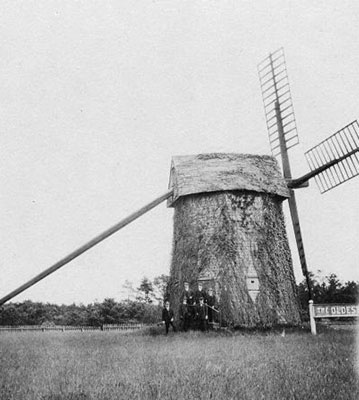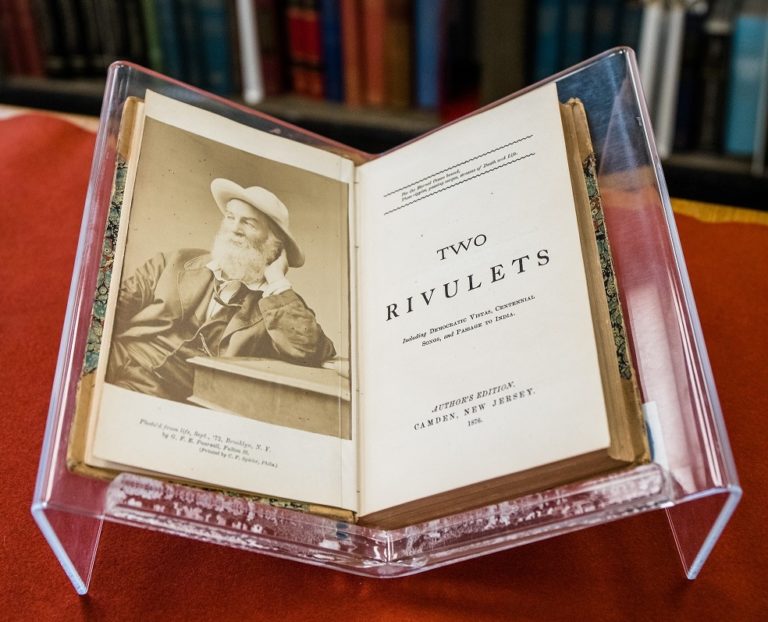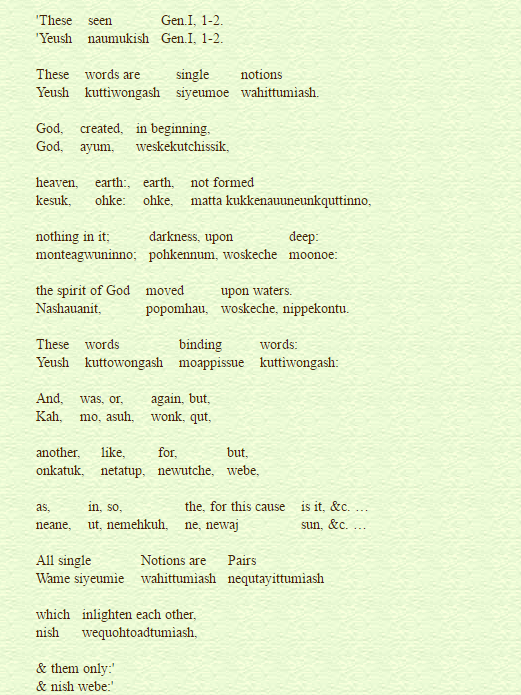Formal Women and Elizabeth Graeme Fergusson’s “The Dream”
As this year’s presidential campaign has abundantly reminded us, the public often judges women based on form: what they wear, how they laugh, how they style their hair. What covers women’s bodies stands in, often in caricatured ways, for the content of their character and the substance of their ideas. This certainly holds true for Hillary Clinton, Michelle Obama and other U.S. First Ladies like Abigail Adams and Eleanor Roosevelt, whose names have been invoked throughout this past election season and who, like Clinton and Obama, have been further covered by their husband’s reputations, charismatic performances, and political records.
Such spousal covering recalls the longer history of coverture in the U.S., the now (at least officially) dormant common law doctrine that understood wives to be covered by their husbands. Wives had no legal identity separate from their husbands. Except in rare instances, they could not make contracts or own property. They could not have a political affiliation different from that of their husbands. And how could a husband rape his wife? That would be like a man violating himself. Legally inconceivable.
Thus women poets’ use of form usually says much about gender and power. In British North America, women celebrated. Women mourned. Women adorned the home, went to church, and tended their families. They wrote occasional verse (poetry composed for a particular occasion) like lyrics, elegies, and meditations, not extended philosophical treatises in heroic couplets or national epics like Alexander Pope and John Milton. Women poets were under-recognized experts and artists in the forms associated with their homes and neighborhoods, the realms where they held power and influence, often as what Laurel Thatcher Ulrich calls deputy husbands, though women have always negotiated the contours and limits of their authority.
In the revolutionary era, the so-called “Most Learned Woman in America,” Elizabeth Graeme Fergusson, wrote in these occasional forms. She was born to Thomas and Ann Diggs Graeme in 1737, and she spent the majority of her life on her family’s estate, Graeme Park, in Pennsylvania outside Philadelphia. As a child, she received a comprehensive education in languages and literature, including Greek and Latin. In her twenties, she visited England and Scotland, and in 1764, while she was there, the British Parliament passed the Stamp Act, which was generally abhorred by North American colonists. She also learned of her mother’s passing while away, and when she returned home in 1765, she turned to writing in grief. Now the female head of the house, she began to host a salon in her family’s home. The salon consisted of elite and intellectual friends, both men and women, and served as a place where they were free to exchange ideas and writings, including their own poetry.

But Fergusson did not always write her poetry as occasional verse. Her 1768 “The Dream” is not an occasional poem. Instead, it is 698 lines of georgic verse composed in response to the political crisis that had persisted even in the aftermath of the Stamp Act’s 1766 repeal. John Dickinson, a sometime member of her salon, had written a notable response to the Stamp Act Crisis in the form of Letters from a Farmer in Pennsylvania, in which he argued that the colonies should be sovereign, rather than subject to the demands of the British.
“The Dream,” versions of which were probably read by Fergusson’s salon, refers to and revises Dickinson’s ideas. It recounts in first person a dream in which the speaker, ostensibly Fergusson herself, witnesses an angry reprimand from Albion, a female personification of Britain, to the Pennsylvania colony. The colony’s deceased founder, William Penn, descends from the skies to make his rebuttal and departs after presenting Fergusson with a scroll. In the poem, she hands this celestial scroll to John Dickinson, whom she refers to as a “youth Conspicuous.” The bulk of “The Dream” is Dickinson’s oral delivery of Penn’s scroll to his fellow colonists. It argues that a self-sufficient and largely rural Pennsylvania—one in which the entire household, including women, contributes to the domestic economy—is the best form of resistance to Britain’s tyranny.
Throughout “The Dream,” Fergusson covers herself with masculine form. She writes a georgic in heroic couplets, like Englishman John Dryden’s influential translation of Virgil’s Georgics. The eighteenth-century British Atlantic associated georgic poetry with state-building because agricultural productivity should regulate nature, civilize citizens, and ensure national prosperity. Politics, and by extension georgics, were the province of men. Though Fergusson was a woman author of her georgic, the poem itself locates her as an inflection point between Penn and Dickinson. Her first-person poem and its political ideas are dressed, or covered, like a man.
Here, the article of men’s clothing most metonymic for Fergusson’s formal turn to masculine dress is the glove. I say glove because the poem is a holograph (handwritten by the author), a material expression of her hand. Eighteenth-century handwriting was gendered: different kinds of script (what we would call cursive today) were taught to men and women. Fergusson’s hand in this poem keeps escaping her control. She has sought to produce a clean, legible, and perhaps elegant copy of “The Dream,” but individual letters and words get squeezed, elongated, truncated, or embellished, reverting to her usually untidy handwriting. Though she wears a man’s glove, her unique and woman’s hand remains present and palpable. One easily forgets that it is Dickinson’s voice, not Fergusson’s, that is delivering the poem’s political sentiments. Her handwriting suggests that for Fergusson, being a covered woman may have felt awkward like an ill-fitting glove, one that she would prefer to discard.
Personal history had given Fergusson much reason for discomfort with being covered by a man. Though she first composed “The Dream” in 1768 as an unmarried Elizabeth Graeme, she transcribed the version below some twenty-two years later, in 1790. It is uncertain whether she edited the poem in the eventful intervening years. Between 1768 and 1790, she had met her future husband, Scotsman Henry Fergusson, at a meeting of her salon; experienced the American Revolution, a cause she initially supported; become embroiled in scandal after she couriered, at her husband’s urging and perhaps unwittingly, a letter encouraging General George Washington to defect to the British (this wasn’t her only such scandal); saw Graeme Park confiscated due to her husband’s enlistment with the British troops (her case wasn’t helped by her own participation in seemingly treasonous actions); was abandoned by her husband; and finally regained control of Graeme Park in 1781, though her personal property had already been sold. She alludes to these years of hardship in her introduction to the poem, where she expresses her disillusion: “How little did I think when I was writing this Rural Peice that I should have my Husband and Nephew exild in Consequence of the Independancy.”
By 1790, when she transcribed this version of “The Dream,” Fergusson would have had enough of being a woman covered by a man, even if she could not fully disrobe and deliver (or even take credit for) Penn’s scroll herself. For me, then, reading the holograph of Fergusson’s “The Dream” in her singular and often messy script causes me to observe a kind of gleefulness in the public appearances of former or soon-to-be-former First Ladies Hillary Clinton and Michelle Obama. Watching their speeches, in which their own forms are front and center, is to see them bare-handed, their husbands’ gloves pulled off and discarded.
A Note on the Text
To the best of our knowledge, Elizabeth Graeme Fergusson’s “The Dream” (1768) has never been published before now. We have edited and annotated her 1790 transcription of the poem, the earliest extant version of which we know. The 1790 transcription comes from her manuscript book Poemata Juvenalia, housed at the Library Company of Philadelphia. The book is part of a two-volume collection that she made of her own writings. A later, revised version of “The Dream” can be found in the second volume, Lania to a Friend. Fergusson’s 1790 transcription is atypically clean and legible. She ruled her pages, included catchwords, and numbered the lines after each hundred. Such markers of care suggest that she expected this transcription to be read by others. In editing the poem, we have added additional line numbers and corrected her misnumbering so that there are line numbers every ten lines. We have removed catchwords and page breaks, and kept her irregular-length stanzas, spelling, capitalization, and punctuation. However, sometimes there is little to distinguish her upper- from lowercase letters or her commas from periods, and we have used our best judgment. Fergusson only very occasionally struck through or inserted words and phrases. These corrections have been silently included in our edition. In a few places, she scraped the page and wrote the lines fresh. We have not sought to determine what she wrote originally in those places. A large portion of the poem is ostensibly the contents of Penn’s celestial scroll. When quoting the scroll, Fergusson provided running quotation marks down the left margin, only adding closing quotations at the end of the stanzas. When she neglected to include the quotation marks, we have silently inserted them. The poem includes handwritten footnotes, some in Fergusson’s hand, some in unknown hands (perhaps hers occasionally). Some of these notes are dated. All of these notes are included with our endnotes. Fergusson’s notes (“Author’s note”) are distinguished from those in unidentified hands (“Manuscript note”).
The Dream
A Poem
This little peice was wrote in October 1768: At a time when th’Americans thought themselves unkindly treated by the English; upon which the Colonies were Endeavoring to turn their thoughts on the produce of their own Country; and trying to retrench[i] the use of those Comoditys Which are imported from Brita[i]n: as they thought Both their Libertys and Propertys unjustly Struck at by the Taxes and Dutys which the Mother Country levied on the American Colonys.
How little did I think when I was writing this Rural Peice that I should have my Husband and Nephew exild in Consequence of the Independancy—now 1790
The Contents.
A Spring Evening described. Sleep. a Dream. A view of th’Atlantic Ocean. Britania her Speech to America. William Penn[ii] the first founder of Pennsylvania appears and Answers the Genius of Britain.[iii] delivers a Scroll to be read to his people. Gods particular Care of Nations. The fruitfulness of the Country. Nature to be followd: extreems shund. The Beauty of true Simplicity. The rural Life pleasing to Heaven. Innocent chearfulness Acceptable to God. A Digression to Virgils Georgics.[iv] Nature and Religion closly conected. Th’ Animal Creation a lively Lesson of Industry. The Bee, the Spider, the Beaver,[v] their Ingenuity. the Care of the Birds to their young. A view of Summer: the richness of that Season; All Nature sensible of the Sun’s Force. the Division and rolling round of the Seasons should fill Mankind with Serious thoughts of th’importance of Time; as every Day brings us nearer to or sets us at a greater distance from th’Almighty. Autumn the plenty of that Season; advice not to Neglect the poor and friendless at that time. Enjoyment of all the Comforts of Life Allowable And the Mistake is only in th’ Excess. Winter Evening describd as spent in domestic Life in A Country family. A disswasive from making use of Slaves in tillage. An adress to Commerce the use it has been to Pensylvania; but Compard now to a drooping Flower. The Beauty of Liberty and the Deformity of Faction.
The Dream
A Poem
Wrote In October 1768
Philadelphia
The Philosophical Farmer.[vi]
The Dream.
A Poem.[vii]
When soft Ey’d May did vernal Treasurs pour,
And filld Creation with a fragrant Show’r:
When Heavens rich Arch glowd with resplendent Light,
Supreamly radiant with the Queen of Night:[viii]
When all was Solemn, calm, and mild Serene;
And no rude Sound disturbd the silent Scene.
With heedless Steps I innocently strayd;
Where babbling Waters in smooth murmurs playd;
The Banks of Delawars[ix] rich stream I viewd,
[10] And Active Fancy various themes pursu’d.
A swift Succession thro my Brain there past,
The Wand of Morpheus[x] oer my Eyes was cast,
Sweetly invaded my exhausted Frame
Sleep soft Composer! uninvited came!
Lull’d every Sorrow of my Anxious Breast,
And laid each Tumult to a peaceful Rest.
The Mind unfetterd fled her native Home,
And unimprisond did unbounded Roam;
Burst every Barrier of her waking Care,
[20] And launc[h]’d unbodied thro’ the yielding Air.
A New fine Motion she thro Ether[xi] found:
Disdaining Matter, and terestrial Ground;
As featherd Songsters skim th’ airy space,
Like the fleet Movments of the fluttering Race:
Then down quick tumbling from a pointed Rock
Fearful I fell, and dread th’impending Shock.[xii]
Yet sunk as gently as when downy Beds
With Soft Indulgence kind refreshment spreads.[xiii]
A pleasing Wonder fill’d my active mind,
[30] And Gloomy Terror could no Harbor find.
A spacious Vale methought showd various Charms,
And Met th’Ocean with extended Arms;
The vast Atlantic rolld his proud Waves round,
And touchd with Majesty the neighboring Ground:
Soft, and more Soft, his Azure Billows rose;
A gentle Motion did his waves disclose:
Till smooth they grew as the pelucid[xiv] Stream,
That gayly glitters to the Suns rich Beam:
His bosom parted; as when Israels Host,
[40] Lost Nile’s proud Sons on famished Egypts Coast.[xv]
A liquid Wall on either Side was seen
And a delightful solid Path between.
There, Albions[xvi] Genius in full splendor stood,
And claimd Dominion o’er the briny Flood:
Fiercly she lookd; with haughty warmth she glowd;
And to the West an angry Eye bestow’d.
“What means she cryd this factio[u]s upstart Race
“For them I leave my concave Grottos place;
“Dare they reject my Commerce and my Power,
[50] “And spurn my Influence in a fatal Hour?
“Shall the rich Vessel part my Waves no more
“Nor fling my treasures on their woody Shore?
“Shall taste, and Elegance, of every kind,
“Be by the Natives of those wilds resignd?
“Forbid it Royalty! forbid it Trade!
“Albion forbids and she shall be obeyd!
“Draw forth ye daring Tribes Retract your claim
“And learn to tremble at a Britons Name.”
She spoke indignant, with commanding Sound,
[60] The Waters murmurd; and the waves rolld round:
The rough Sea echod to th’angry Tone
And ownd her Misstress of his depths alone.
Then to the West with wondring Eyes I saw,
A lucid Cloud its silver lining draw;
With purple Edging was it glorious fring’d,
And blushing Crimson oer the foldings ting’d.
A Form Celestial, venerable, Good,[xvii]
Lookd down complacent on th’ Azure Flood:
Mild Truth resplendent round him stood confest
[70] As he the Genius of the Deep adrest.
“Guardian of England! listen and Atend
“For Heaven inspires and is fair Virtues Friend:
“Great is your Power; but still that Power has Law,
“And God, and Reason certain Limits draw,
“I once claimd Britain, for my Natal Soil;
“And thence I led a hardy Race for Toil,
“These Western Woods from Savage Steps we cl[ear]ed
“And just I[n]dustry her rich Ensigns reard.
“We fled the soft delights of downy Ease,
[80] “For Manly Liberty and virt[u]ous Peace;
“Conveneince, Comfort, Elegance, arose,
“And Curious Science did her Charms disclose:
“My Pennsylvania flourishd fair to view;
“Divinely Waterd with Celestial Dew.
“No cramping[xviii] Bigot dard prescribe harsh Rules
“From the proud Customs of Tyranic Schools;
“All who claimed Jesus as the Son of God,
“Those trod the Mazes of Religions Road:
“Freedom we honord; but did Faction hate
[90] “The vile Subverter of a new formd State.
“Heaven [seems] to favor our obscure Retreat,
“And dove like Peace here fixd Her rural Seat,
“But earthly Bliss is still a fleeting Cloud
“That Sorrows Mantle will at last enshroud.
“A grasping few with Narrow sordid View
“And Slavish Shackels my dear Sons pursue;
“Tho fair America they see with Pain
“And seek to bind her with a lordly Chain
“Yet know tho’ Liberty is oft abusd,
[100] “And her bright Name to various ills misusd
“She glows untainted in some worthy Breasts
“The Sacred Flame in virtuous Bosoms Rests:
“Some Patriotic merit yet remains,
“With ardent Zeal on Pennsylvanias Plains;
“Thousands and thousands catch the happy Fire:
“And to the generous noble warmth Aspire.
“Such is the Fate of human things below,
“So sadly blended, it is hard to know;
“If selfish Faction and licentious Strife
[110] “Push not the Current of impet[u]ous Life:
“All passion dread as you a fire would Shun
“[Hard] to extinguish where its [now] begun!
“Sad fate of Language! that ‘tis not confind,
“To show the feelings of the honest Mind
“Hence Candor, Liberty, the Patriots Sigh;
“The Laws of Honor, and each virt[u]ous Tye
“Lose half their Energy, their nervous Force,
“By being tainted in so base a Course:
“These Hacknyed Themes from every mouth transpire
[120] “And all dare [boast] of Virtues hallow’d fire.
“But Time alone, the true Criterion, proves
“Who hates pious Virtue or pure Virtue Loves.”
Me thought I saw a fair long written Scroll
Our pious Founder did the Leaf unroll;
Gently to me the happy Spirit drew,
And in my Bosom this commission threw,
“Go show my Children what is written here
“May Pennsylvania hold my precepts dear.”
The Cloud swift vanishd and th’ azure Main,
[130] Became a vernal and delightful plain;
Where to the West rolld Schuylkills[xix] limpid Streams
And East grand Delaware met Sols[xx] first Beams.
A busy Multitude around were seen,
And trod in groupes the tufted vivid Green.
One youth Conspicuous, towerd above the rest[xxi]
This Countrys Freedom had inspired his Breast
To him the scroll I instantly resignd
That he its Characters should strait unwind.
With modest Diffidence he graceful Bowd
[140] And read their meaning to the listning Crowd.
“Think not my Sons that Gods paternal Eye
“Dont all Creation in an instant Spy?
“For if a sparrow touches not the Earth[xxii]
“Unseen by him who gave all Nature Birth:
“And each hair numberd in his Sacred Page
“An Injurd Nation must his Care ingage:
“For small and great are only terms below
“Our maker does the whole Gradation know
“Tho’ happy, glorious, of all Good possest,
[150] “He views the Sorrows of each suffering Breast:
“Points out Expedients for a peoples Rise;
“And Blesses Virtue from his Sacred Skys;
“Such is your tangled and embarrassd Fate;
“Such is the Nature of the present State;
“You must rich Commerce for a time resign
“Nor need you deeply at the Change[xxiii] repine.
“Then hear my Children all your native Store,
“What Bountys Heaven does on yr Country pour.
“So highly favord in your Natal soil,
[160] “It asks but Easy and well seasond Toil:
“Each useful Thing for Lifes fair path is found
“And fertile plenty scatters Bliss around.
“Yet not from choice you Britons wealth disdain
“Only to fly the Fe[tter] galling Chain.
“To lesser Evils thro’out Life we run,
“When we a greater wisely seek to shun.
“Then hear the methods I point out to view
“How you may Plentys liberal Wallks pursue.”
“Keep simple Nature in your steady Eye
[170] “Observe her movements, her Directions spy;
“Tho’ the great Parent of a numerous Race
“She smiles benignly on that favord place;
“Where she is Courted, honord, and reverd;
“Her precepts valu’d; and her Laws are heard
“There will she rise in Majesty Divine
“As Gods Chief Agent most Illustrious Shine.
“Not Rough and Rugged as the savage kind,
“Whom Rules cant fetter, nor soft Manners bind;
“Not deaf to social and endearing Life,
[180] “Not bold, Contentious, full of angry Strife;
“Not chargd with vengeance and malicious guile
“Unconscious of the sympathetic Smile
“Where Bosoms feel not for a Brothers grief
“Nor Souls fly speedy to a Friends relief;
“Not such the Manners that I wish to Reign
“In Brutal Roughness on my favord Plain.”
“A happy Medium be my Sons your Guide
“From rustic rudeness, and a splendid pride:
“As you would flee the Savage Indians roads,[xxiv]
[190] “Trod by the Nations of your green Abodes;
“To shun the softning Lure of British Wealth,
“The fair subverter of your Countrys Health:
“Too nice,[xxv] too elegant, for your new Soil;
“A sweetend poison; a distructive smile.
“Live Independant of her gewgaw[xxvi] Charms
“In shunning them you shun a train of Harms:
“Turn then from Commerce your too blinded Eyes,
“And learn your Countrys own produce to prize.
“Nor think the Subject mean[xxvii] that points the Way
[200] “How Toil industrious pleasure shall convey;
“Labor and Rest shall just Alternates know,
“Sweet is the Rest, which does from Labor flow;
“And sweet that Labor too, supreamly Blest!
“Which Strength recovers by the Balm of Rest:
“Show by your Actions, not in wordy War,
“That Patriotic Liberty is dear;
“Dear to your Souls as Ophirs[xxviii] purest Gold,
“And for no price, be sacred Freedom Sold.
“With all thats useful does your Earth abound
[210] “Then dig most chearful her maternal Ground;
“There the rough Iron lays in virgin Ore
“And gives in loads a hardy ponderous Store;
“The nodding Forest yields a wood of Fire,
“To make the Metal every Form acquire;
“For Ships, for Tools, for every Stroke of Art
“That Man Ingenious wishes to impart.”
“Your Wool-clad Sheep unite in grazing Flocks
“And frisk delighted on the hilly Tops;
“Shear their soft Coats; and draw the fleecy Wool
[220] “In threads extended from the whirling Spool:
“Thence Manufactured in a decent Form
“In Winters Cold to keep your household warm;
“And Mark industry for the Female Bands,
“And gives Employ to ancient feeble Hands,
“Whose Strength admits not Labors ardent Toil
“Whose sex too tender for to dig the Soil.”
“Observe with Pleasure that delightful green
“The highest Verdure of the verdant Scene,
“The shooting Flax[xxix] in all its turns pursue;
[230] “Till on the Mead the whitening Web you view:
“By murmuring Waters and pelucid Streams;
“Wet the fine Linnen in the Suns warm Beams;
“Till it a fairness on the meadow Shows
“Pure as the surface of untroden Snows:
“This Task my Daughters Be immediate thine
“In Life Domestic ye were born to Shine;
“Sweet in Simplicity in native Charms,
“Turn turn from Pleasurs too bewitching Arms;
“By just Employ you fly a Groupe of Ills
[240] “That oft the Breasts of Idle Females fills.
“Yet Chearfulness with Innocence and joy
“May share the moments from severe Employ
“The God of Spirits loves your Bliss to See,
“He is no Stern no dreadful Deity:
“Think not the Lord of all delights to Scan
“A Surly Sorrow in repining Man;
“Who Bows his Head as the bent Bull-Rush down
“And views His maker only in a frown;
“Such feel the Devils in their Hell below
[250] “Perhaps that Terror the worst Hell they know.”
“As Joy, Complacence, and a Source of Love;
“Fill up the Moments of the Blest above
“So you who placed are on a middle State,
“Must Joy, and Sorrow, thro’ your Moments date:
“Alternate Chequerd is your earthy Lot,
“So let your Station never be forgot:
“Let humble Confidence your Bosoms warm
“And steady Reason every Act inform;
“Know you can fall; yet hope you[’re] born to rise,
[260] “In happy Splendor to your native Skys;
“Indulge this Virt[u]ous, this expecting Joy,
“It shall the stings of venomd Life destroy.”
“But now ‘tis Freedom’s more immediate Cause,
“That you from Luxurys Attractions draws:
“To show proud Albion that you can resign
“Her Manufactures, and her Trade decline:
“When weighty Taxes do each good invade
“And strike at Liberty, that lovely Maid!
“Safe let her rest beneath your Western Skys;
[270] “And fall her Martyrs; or her Heroes rise.”
“But know abstracted from your present State
“Tis there, ‘tis certain past the last debate;
“That Comfort flows not from the Pallace wall
“Nor comes Obsequious at the Wealthys call.
“Th’Almighty Parent of the world assignd,
“Some Source of Pleasure to all human kind;
“And if the Sons of Comus boast their joy[xxx]
“In wanton Revels; soon those Revels Cloy:
“The sparkling Bowl with Bitterness is crownd;
[280] “And Dissapointment hovers all around:
“Thus the voluptious in each new excess
“Finds more untasted, than he can possess;
“The Blosom promises beyond the Fruit
“He Spurns the present for some fresh pursuit
“And Idle vacancy gives some new Plan;
“And holds up Phantoms to deluded man.”
“Thus when the Peasant does your Pity Share,
“By constant Labor, and a Scanty Fare;
“You recollect not half the Ills you feel
[290] “In the Atainment of the studyd Meal:
“The train of Wants that Elegance will draw
“When you are fetterd by Gay Fashions Law:
“The Strings of Envy that in little Minds
“Which Wealth Superior in the Neighbor finds:
“The Shifts, the Meanesses, to make a glare
“That Fools may wonder; and aplauding Stare;
“Such are the draw backs on the Heart that aims
“To square its Wishes by anothers claims;
“These are the Taxes thro’ Lifes fashiond Ways
[300] “When Fancy flys from Sober Reasons Rays:
“Stop at Convenience; That you may procure,
“And no one hardships need in Life endure:
“More Health, more Chearfulness, and more Content;
“Would in your Stations be to each one lent:
“Oh could you view the happy rural Scene!
“Where minds for Comfort do not Weakly lean
“On foreign Pleasures, and on foreign Joys;
“That fly when tasted or repeated Cloys:
“You might exult beneath your peaceful Clime
[310] “And bring the Fables of the golden Time
“Back to your sight; in those primevial Days
“Where happy poets; happier scenes displays:
“But leaving Fiction let your Eye pursue
“The Sacred Page where you may [pleasing] view;
“The pious Patriarch with blest delight
“And Mamre’s Plain and Shady Oak invite;[xxxi]
“There dwells the Sage, as Prophet, Priest, and King;
“Around extending his all shielding Wing;
“Friendly each night beneath his vernal-Oak
[320] “He did the Strangers weary Steps invoke
“To rest from Travel underneath his Shed,
“And taste the Comfort of his rural Bed:
“Such Hospitality pleasd Israels God
“His Angel Shelterd in the kind Abode!
“The worthy Host was from Destruction spard
“While guilty Sodom[xxxii] fiery Vengeance shard.”
“Listen my Sons while I a portrait plan
“Do you intently all the movements Scan
“Of Rural Manners; as the Seasons glide,
[330] “And Lights bright Circle does your Time divide:
“Thro’ the gradation of the rolling year
“Till the Suns Orb surounds your lower Sphere.
“How pleasing in Springs vernal Seasons Time,
“The striking Emblem of Man’s youthful Prime;
“To mark th’ Earth her frozen Sap unbind,
“And melt and soften to the Southern wind:
“Shoot out the Treasurs that she holds in Store
“And rich luxuriance on each Land[scape] pour.
“Yet not alone her lovely face admire,
[340] “To action them with busy Steps Aspire;
“Dig and manure th’opening thawing Soil
“Nor spare the Labor of industrious Toil.
“In Romes Gay Court when Grand Augustus[xxxiii] reignd
“The rural Poet every Ear detaind;
“The theme and writer were by all admird
“A deathless Fame this happy Verse acquird
“He more true Knowledge in those Lines conveyd
“By teaching Methods for the Peasants aid;[xxxiv]
“Than when he did great Ilions[xxxv] fall recite,
[350] “And the dark Terrors of that gloomy Night,
“When good Eneas left his Native Shore,
“New Lands untroden hardly to explore.
“The Mantuan swain[xxxvi] was heard with higher joy
“When simple Subjects did his Pen employ;
“Than when the Passion of an injurd Queen
“Was in his Numbers but too lively seen;
“When Life with Honor was to Dido lost
“Soon as Eneas left Rich Carthage’s Coast.”
“Think not these Subjects then beneath yr view
[360] “But Native skill my darling Sons pursue;
“Close with Religion are her Precepts wove
“Man must his Maker in his Works approve:
“Then turn transported to the mighty Source
“That gives the System its surprizing Course.
“Birds Beasts and Reptils do to mankind preach
“All to the Heart some useful Moral teach;
“What you from Dearth of Language Instinct Name
“Is what the Race of Animals all Claim:
“Is Nature pointed to the properest Ends,
[370] “Which to the Good of Individual[s] Tends:
“In feelings given by the Lord supream
“To keep in harmony the wondrous scheme
“Of Life and Nature; so the various Aims;
“Each Race of Beings from their Parent Claims:
“All as Lights scatterd Rays converge at last
“To bind the Chain the curious system fast.
“Then let not Nature raise her voice in vain
“Nor let proud Man these useful Hints disdain;
“Know they immediate for thy aid were sent
[380] “As proper Lessons for thy service lent.
“When the wise Bee who can fully excell
“Loads with rich Fragrance all her waxen Cells;
“And Sips the sweetness of her shining Flower
“From sunny Banks or shady gloomy Bow’er:
“Let this a Hint to wondring man throwout,[xxxvii]
“Like her to guard his native House about;
“While the Drone exild knows no happy home
“A useless vagrant does neglected roam.”
“Mean tho’ the Spider to your Eyes appear,
[390] “Nor by her Figure does her Deeds endear:
“Yet the neat Loom was first to Mankind given[xxxviii]
“Thro’ this small Creature by the will of Heaven:
“Her curious Web alternated fine,
“First taught the notion of the flaxen Line;
“As the thin filaments she artful Drew,
“And wove and plaited the perplexing Clue.
“The wondrous Beaver by the waters Side,[xxxix]
“First in Contrivance stands of Beasts the Pride!
“Large Logs, and Trees those Active People bring
[400] “And in a Compact all united fling:
“Their Houses built Commodious, strong, and Large
“Neatly constructed at the Public Charge,
“With Walls and Ramparts firmly guarded Round
“No Spot defencless near their Forts are found:
“Best for each purpose is each movment pland
“As Reasons Eye the wondrous whole had scand.”
“The Featherd Familys in Chorus join,
“To prove the Goodness of a Hand divine;
“The Care minute of their enfeebled Race
[410] “The soft Enclosures of the little Place
“Where the fond mother kindly hopes to rest
“And guard from rudeness all her helpless Nest:
“This whispers fore thought to the Female Trains,
“A lively Picture to the Sex remains;
“Of Soft Attention, and Maternal Care
“That no Indulgence to their young ones spare.”
“Thus All Creation is a living Page,
“Which should the Eye of Reasons Sons engage;
“Too vainly proud of that superior Claim:
[420] “They boast all haughtily of the Sounding Name:
“Their Shame or Glory as by them tis usd,
“Mans chief Abasment when the most abusd!”
“Now tread with me the blushing Summers morn
“When Fruits and Foliage the gay Scenes adorn;
“Nature maturer glows in vivid Hues,
“And Early glitters through the pearly Dews:
“Life, Action, Pleasure, Animate each grove
“And all the Raptures of the Seasons prove!
“The happy Farmer views with honest joy,
[430] “The growth luxurient of his late imploy;
“The vallys sing; the Hills with plenty smile,
“And bend beneath the rich and golden Spoil:
“In shining Rows swell the redundant Grains
“And droop oer loadend on the yellow Plains:
“They wave in chorus to the gentle Breeze,
“A rustling quiver to the fluttring Trees.
“An undulating motion o’er them Skims
“As the Soft Air light on their Surface swims.”
“The fleecy Flocks resign their Tufts of Wool
[440] “From them swift transferd to the whirling spool;
“Chearful they yield their Warm and useful Charge
“And leap exulting oer the Fields at large:
“Range thro’ the meadow, or the solemn Grove
“And all the joys of thoughtless Freedom prove.
“A lovely Eden[xl] rises to the Sight,
“And fills the Bosom with Serene delight:
“Earth, Air, and Water feel the Suns warm rays,
“And glow beneath his peircing genial Blaze.
“The God of Nature gives this Sun his power,
[450] “And marks the Action of each fleeting Hour:
“Whether an Innocence of Soul you feel,
“Or impious Malice in your Breast conceal;
“His the Religion of the virt[u]ous Heart;
“That the great Fount that does a Bliss impart:
“All actions tingd from that one Cistern flow
“From thence polluted or refind they glow;
“Tis not th’End of unforseen Events,
“But tis the Nature of the Soul’s intents;
“Makes man accepted in the Sight of God,
[460] “And turns to Mercy the vindictive Rod.
“Thus every Season Stamps you good or Ill;
“As you the movments of Times Circle fill:
“Tremendous Certainty! most awful Thought!
“To know each instant we are nearer brought.
“Or further distanced from the Lord above,
“The Source of Comfort, and the Spring of Love!
“Each rolling Period brings an honest joy
“When wisely measurd by a just Employ.”
“The God of Nature when he walked on Earth[xli]
[470] “He who pre[s]ided at Creations Birth.
“Declard no monarch in his Eastern Power,[xlii]
“Could vie in Beauty with a simple Flower:
“State and Magnificence at once must yield
“To the fair Lilly that adornd the Field;
“Such the Decision of the Son of God;
“As thro’ Judeas neighboring meads he trod.[xliii]
“Then think my Sons a rural Life is Best,
“When God with kindness has your Soil thus blest,
“Pursue the Seasons with a grateful Soul,
[480] “As they alternate thro’ Lifes Circle roll.”
“Now bounteous Autumn bends beneath his weight
“And pours profusely at the Farmers Gate;
“The folded Corn, and every [O]thr Grain[xliv]
“Is gatherd chearful from the Stubble plain:
“The hoary Morn and evenings chilly Frost
“Quicken Mans Labor lest his Toil be lost;
“Since Nature lavishes a generous Store,
“Turn not the helpless from your rustic Door:
“With open Hand a liberal share impart
[490] “To Glad the pensive, and the widowd Heart;
“So shall that little Sanctifye the whole
“In double increase for the well Timd toll.
“Use the remainder with a decent joy,
“The honest earnings of a just Employ.
“Let gloomy Souls preach heaviness of Heart,
“And fears, and Terrors dreadfuly impart,
“Taste not, and touch not; is their narrow Cry
“Lest you ofend an angry Diety.”
“Tis Superst[it]ion! littleness of Mind![xlv]
[500] “God sheds his Bountys on the human kind,
“A grateful Heart is pleasing in his Sight
“A chearful Spirit does the Lord delight,
“Tis th’ Excess, but not th’ Use ofends
“Each good is purpos’d to proportiond Ends;
“Those Bounds exceeded terminate in Pain
“And teach in Sorrow that Man must abstain.
“Heaven then disgusted throws the pointed Dart
“And Strik[e]s with venom the volupt[u]ous Heart.
“Now shortning Days and lengthning Nights roll round
[510] “The keen Frost whitens all the hardning Ground;
“The lowing Cattle claim peculiar Care
“And all mans Household should Protection Share:
“Let not that Household be of Africs Bands
“From the Scorchd Borders of parchd Guineas lands[xlvi]
“Draw not a People form their Natal Coast,
“While you the Rights of sacred Freedom Boast.
“Can different Color Stamp a Man a Slave?
“Unworthy Notion of a spirit Brave!
“Weak Plea to argue they are Happy Made,
[520] “When torturing Shackels do their Peace invade;
“To Every Bosom is fair Freedom Dear
“Her Loss of Losses is the most Severe;
“A Real Evil, a substantial Wo[e]
“All Men from Vassalage must undergo.
“And tho their Labor should enrich your Soil,
“Despise the gleanings of so forcd a Toil;
“Where the Heart Curses what the Hand pursues
“And oft in Vain for gentle Pity Sues:
“Their Crys when Injurd do to Heaven ascend
[530] “For God at last the wretched will defend;
“The Poor, and Captive his Attention Shares
“The Sigh of Sorrow reach his Sacred Ears;
“The Groan of Anguish scales his holy Throne
“And every Tear in Bitterness is known.”
“Now Winter comes in all his chilling Trains
“No vernal Beauty ornament the Plains;
“The fields diserted harrowd up from Toil
“Ice chains the Rivers, and close Binds the Soil.
“Here happy Home becomes Mans chief delight
[540] “Now mark the Picture of the rural Night.
“The tender Father with his little Race,
“Are close collected in a narrow Space;
“Th’active Blaze the social Circle Warms
“While kind Instruction curious minds informs.
“First Sacred Scripture filld with pious Truth
“Is read with Caution to attentive Youth;
“This is your Bulwork; this your Source of Good
“The Souls Subsistance; and its Mental Food:
“The Anxious Parent prays that Grace divine
[550] “May light each Period and infold each Line.”
“His Female Partner tums the Wheel[xlvii] around
“While soft Complacence in her Breast is found;
“That conscious Worth which Innocence bestows
“Thro’ every Act does Dignity disclose:
“Graces each Motion, animates and Cheirs
“And the lest Movment by some way endears.
“Well timd Employ to every Sex and age;
“Does the fond Groupe attentively engage;
“Their hopd reward, is that the Parents Eye
[560] “With Aprobation may their Progress spy.
“Oft Tomsons gentle rural themes are read;[xlviii]
“Beneath the Shelter of their humble Shed:
“Or the smooth numbers of the Mantuan Swain
“Who paints the Culture of Romanias Plain;[xlix]
“Now modern Italy: But ah how lost!
“No more the Shepherd, nor the Heroes Boast;
“Dead to each manly and each honest joy
“Loose loves, loose Sonnets all their Hours employ;
“Plain in their Lot this weighty Truth is shown
[570] “That all is lost, when Liberty is flown
“Too soft for virtue, pliant but to Vice,
“The Soul becomes fastidious and Nice;
“Binds all its Force to things beneath its Care
“And Pants for Triffles light as Summers Air.”
“Milton, and Lock, and Addison, are read,[l]
“Each Page where Virtues lovely Form is spread:
“The Tale, the Poem, and the Fable may
“If managd right all useful Truths convey:
“To one bright Point may different Roads converge[li]
[580] “And Vice, and folly in their Pictures Scourge;
“Raise up meek Merit, crush the Foot of Pride
“That seeks Mild Virtue in her Cell to hide;
“Draw forth the Honest to the Public Sight
“And place their Goodness in a Beam of Light;
“When such the motives of th’Authors Plan
“Do not too rigidly his conduct scan;
“When Truth and Virtue Animates and Warms
“He may like Proteus[lii] move in various forms.
“Thus pass the Seasons, such the Farmers Life
[590] “Exempt from Envy and tumult[u]ous Strife;
“Within himself he may each Comfort find
“That can give Pleasure to the human kind:
“A decent Plenty and a golden Mean[liii]
“Around his House in just arange are seen;
“Love, and Affection, and each Social Tye;
“That fills the Heart with mutual Sympathy:
“A soul dilated from a Conscience pure;
“A Body hardy that can ought endure
“Of Heat and Cold, viscitudes[liv] below!
[600] “The happy feelings of a healthful Glow;
“These are his Treasures, Treasures truly namd!
“Their Spring is Nature, by calm Reason aimd;
“Tracing his God in every Plant and Flower
“In all the Beautys of the fragrant Bower.
“In the fine movments of the spangled Night,
“Or the meridian of the Lamp of Light;[lv]
“No vile Dependence undermines his Truth
“No City Vices Sap the Bloom of Youth;
“No false Refinments Constitute his Taste
[610] “No ill timd Elegance his Substance waste.
“But God and Nature are his sacred Guides
“And Reasons Torch, a steady Light provides;
“A noble Liberty his Spirit proves,
“A generous Freedom all his Actions moves;
“Now independant is the Rural Plan
“More his own Master is the Rustic Man;
“Than most of Beings In whose Lot you find
“A train of Shackels to drain down the Mind:
“Tho’ all mankind must Social Fetters draw
[620] “This Is Societys compacted law.[lvi]
“The useful Links of Mans connected Chain,
“The close Dependance of the Human Train
“Checks pride and Folly, Meliorates the Soul
“And makes kind feelings in the Bosom Roll.”
“Hail noble Commerce! Pennsylvanias boast!
“Let not your Merit in my theme be lost;
“Judge not I seek your Virtue to Depress,
“Or with reluctance your high Worth confess;
“Be yours the Glory of Yon growing Pile[lvii]
[630] “The honest Harvest of your [Watry] Toil:
“Trade reard her Banners; and her Ensigns spread
“In Pomp[lviii] she raisd her unsuspecting Head:
“Long there she flourished like a fragrant Flower
“The richest Triumph of some lovely Bower.
“Cast her fine foliage and her sweets around
“And Scaterd beautys on the shinning ground.
“Fed the wise Ant and th’ Industrious Bee
“And gave her Treasures undisturbd and free
“Till on a fatal and a cruel Day
[640] “A cold North-wind did frozen Blasts convey:
“Shriveld the luster of its lovely Hue,
“And bathd its brightness in a chilling Dew;
“It fades, it droops, it seeks its natal Earth,
“Resigns its Honors, and forgets its Birth:
“Lost and low troden with the Common Clay
“Tis bore neglected from its Soil away:
“But in some Period that is yet unborn
“The lovely Flower may still your wallks adorn;
“Shine out Refulgent and revive to light
[650] “And by fresh Luster every Eye invite.
“Make Pennsylvania blest in every Sweet
“The happy Harbor and the calm retreat
“Of Worthy Foreigners from every Land,
“A Pleasing, social, and a generous Band;
“There Hospitality with open Door
“Shall pour delighted from Profusions Store;
“To distant Trav’lers a kind Welcome give
“And mutual take, and mutually receive
“The various Produce of each differing Soil
[660] “With honest frankness and binignant[lix] Smile.
“Then shall Brittania her own Interest view
“And soft measures will at last pursue;
“Self Love will teach her by new Plans to move
“And you the Sweets of Noble freedom prove;
“But for a Time that Freedom to Secure
“You must the Loss of Elegance endure;
“Turn then your thoughts to rural Manners now
“And break the Glebe[lx] with th’ ind[en]ting Plough.
“Pray th’ Almighty kind to bless your Toil;
[670] “And look down gracious on your culturd Soil;
“Far, far be Faction from your People fled
“Of every Evil most that Monster dread;
“As widely different from true Freedoms Form,
“As the chaste Flame which does the Matron warm
“Is from the Fire that animates the Breast
“Of wanton Lais when she stands confest[lxi]
“The loose enticer of some hapless Youth
“Who flys from Virtue, and the Paths of Truth.
“Freedom, and Faction never can unite,
[680] “Tho undestinguishd to the Vulgars Sight,
“A nice Decorum in the one is Seen
“Th’other boasts an Insolence of Mien;”
“Adieu my Sons! this last advice revere
“Fear God alone, but never Albion Fear.”
A buzing Murmur of Applause flew round
And filld the confines of the Neighboring Ground;
Loud as when Waters dash the pebbled Shore
And hallow winds at first are heard to roar.
Sleep fled reluctant at the gathering Sound
[690] No more his Fetters all my Senses bound;
I wakd by Schuylkills murmur[ing] winding Tyde!
No more the Streams did undulating glide:
A Storm of Thunder hoverd from on High
And Lightnings Darted from the Fiery Sky
No gentle Zephyr flutterd on the Trees
No waters bubbled to the Curling Breeze;
In one short Hour the placid Scene was fled
[698][lxii] And Gloom and Darkness oer all Nature spread.
Laura[lxiii]
Graeme Park October th 15 1768
Further Reading
Anne M. Ousterhout’s posthumously published The Most Learned Woman in America: A Life of Elizabeth Graeme Fergusson (University Park, Penn., 2004) offers a readable and thorough biography of Fergusson. Ousterhout’s book is introduced by Susan M. Stabile, whose own book, Memory’s Daughters: The Material Culture of Remembrance in Eighteenth-Century America (Ithaca, N.Y., 2004), presents a fascinating account of the interconnection of women’s manuscript authorship, handwriting, memory, and domestic spaces. Caroline Wigginton relates Fergusson’s “The Dream” to early American women’s capacious approach to publication in her book In the Neighborhood: Women’s Publication in Early America (Amherst, Mass., 2016). She discusses the poem and its georgic form in further detail in her essay “Letters from a Woman in Pennsylvania, or, Elizabeth Graeme Fergusson Dreams of John Dickinson,” included in Community without Consent: New Perspectives on the Stamp Act, Zachary McLeod Hutchins, ed. (Hanover, N.H., 2016). For the landmark history of women in the American Revolution, see Mary Beth Norton, Liberty’s Daughters: The Revolutionary Experience of American Women, 1750–1800 (Ithaca, N.Y., 1980). To learn more about the concept of deputy husbands, read Laurel Thatcher Ulrich’s Good Wives: Image and Reality in the Lives of Women in Northern New England, 1650-1750 (New York, 1991).
[i] i.e., to diminish or reduce
[ii] Quaker William Penn founded the Pennsylvania colony in 1681.
[iii] Fergusson figures Britain as a woman at several moments in the poem. Sometimes the figure is named Britannia, sometimes Albion, sometimes the Genius of Britain or Albion.
[iv] Virgil’s Georgics was a Latin poem from around 30 BC that became particularly popular in the eighteenth century after British poet John Dryden translated it into English in 1697. This translation sparked in the upper, urban classes of the time an interest in agriculture and its relation to the cultivation of nationhood.
[v] Bee, Spider, Beaver: animal symbols of industry
[vi] Fergusson used the space below the poem’s title to copy another poem. It is not clear if the poem was to accompany “The Dream” or when the poem was added. The poem is “An Acrostic on a Celebrated Nymph” and Fergusson included a marginal bracket on the left to indicate that the last three lines are a triple rhyme. It is an acrostic poem, in which the first letter of each line together spell a word, in this instance LIBERTY:
Like pure Retreats of tractless Virgin Snows
In Alpine Heights, where no Rude Footsteps goes!
Balmy a[s] Zephirs of Sabean Groves;
Easy and Careless as the Bird that Roves.
Rural as A[uburn] on the Village Green,
Tripping Elastic oer the artless Scene,
Youth, Truth and Vigor, blended in her Mien
Graeme Park Laura 1790
[vii] This repetition of the poem’s title occurs on the next page.
[viii] i.e., the moon
[ix] Philadelphia was founded on the banks of the Delaware River, which flows into the Atlantic.
[x] Greek god of dreams
[xi] As air filled the lower regions of the atmosphere, a medium called ether was thought to fill the upper regions.
[xii] Manuscript note: “That is a Sensation in dreaming I suppose evry one has Experiencd at times”
[xiii] The manuscript indicates that there is a footnote for this line, but there is no footnote at the bottom of the page.
[xiv] i.e., pellucid, or transparent
[xv] A reference to the Old Testament story of Moses and the Israelites escaping their enslavement in Egypt. God parts the Red Sea for them and then drowns their Egyptian pursuers.
[xvi] Albion, i.e., the island of Britain. See n. 3.
[xvii] Manuscript note: “William Penn who Settled Pennsylvania 1780.” The year likely refers to when the note was added, not the year of Pennsylvania’s founding, 1681.
[xviii] cramping: forcibly narrowing or constricting
[xix] The Schuylkill River flows into the Delaware River. Penn founded Philadelphia at their confluence.
[xx] i.e., the Sun
[xxi] Author’s note: “Mr John Dickinson a gentleman who wrote a Series of Letters Called the Farmers Letters which were almost universaly admird For explaining the Rights of Taxation and the Constitution of Pennsylvania its Charter.” The last four words, followed by a scribble, were added later and are perhaps in a different hand. John Dickinson wrote an influential series of pamphlets, Letters from a Farmer in Pennsylvania, from 1767 to 1768 that contained his opinion on the sovereignty of the colonies. He was also opposed to the British taxation of the colonies for revenue, likening it to slavery. Dickinson was an occasional member of Fergusson’s salon.
[xxii] Manuscript note: “Matthew 10c.” The biblical verse Matthew 10:29 reads, “Are not two sparrows sold for a farthing? and one of them shall not fall on the ground without your Father.”
[xxiii] i.e., the Royal Exchange, a London precursor to modern stock exchanges
[xxiv] Pennsylvania initially had a peaceful relationship with the region’s resident and neighboring Native nations—the Lenape (or Delaware), the Shawnee, the Susquehannock, the Haudenosaunee (or Iroquois)—but these relationships deteriorated into distrust and violence over time, often due to treaty and trade violations as well as land encroachment by colonists. It was difficult for Pennsylvania’s government to regulate the steady influx of European immigrants, many of them non-Quakers who settled in what was called the backcountry.
[xxv] i.e., fastidious or refined
[xxvi] i.e., a showy but useless object
[xxvii] i.e., unimportant or of low social status
[xxviii] Ophir was wealthy biblical port city, noted for sending luxurious tributes to King Solomon.
[xxix] Flax is a plant from which linen is made.
[xxx] Manuscript note: “Comus God of Drunken Revels and feasting.” A revel is a festivity or party, often associated with drinking and unruliness. At celebrations, alcohol was often served as a punch in a bowl.
[xxxi] In the biblical book of Genesis, three strangers, thought to be angels, visit Abraham and Sarah on the Plain of Mamre and promise a child, despite the couple’s advanced age. Within a year, Isaac is born. Abraham and Isaac are two of the three Patriarchs of the Israelites. An oak, still standing today, is said to mark the site.
[xxxii] Sodom is a biblical city destroyed by God for its sinfulness. Abraham pleads with the three angels for its deliverance soon after they visit and promise him and Sarah a child, but the angels are unable to find the requisite ten righteous residents.
[xxxiii] Founder and first emperor of the Roman Empire
[xxxiv] Manuscript note: “This Refers to Virgils Georgicks.” See n. 5. The note has been placed here by the editors, but the manuscript does not indicate where to place the note. There are parentheses around line 334, but they appear to have been added after Fergusson’s 1790 transcription.
[xxxv] Ilion refers to the legendary city of Troy. The Aeneid (29-19 BC), also by Virgil, begins with its titular hero Aeneas (here Eneas) fleeing Troy at the end of the Trojan War, in search of a new home. The new home is Rome, and the Aeneid credits him with its founding. The remainder of the stanza refers to this ancient epic poem, familiar to her coterie.
[xxxvi] i.e., Virgil, who was a native of Mantua, Italy
[xxxvii] i.e., throughout
[xxxviii] Manuscript note: “The Invention of the Loom i[s] thought was sugested by this The Spidr.”
[xxxix] Manuscript note: “There is no Poetical license taken as to the acount of the Beaver[.] read Nature displayd and many other writers on natural History.” This note was likely added after 1804, the publication year of Nicolas Dufief’s Nature Displayed, in Her Mode of Teaching Language to Man (Philadelphia, 1804).
[xl] Biblical garden of God and the home of Adam and Eve before sin
[xli] Manuscript note: “6 Chapr St Matthew 28 Verse.” Matthew 6:28-29 asserts that even the great king Solomon was not as gloriously arrayed as the simple lilies of the field.
[xlii] i.e., King Solomon, an important biblical figure
[xliii] In biblical accounts, Judea, or Judah, was one of the two main regions of the united Israelite kingdom under King Solomon.
[xliv] Manuscript note: “Indian Corn folded different from other Grain.” The phrase “folded Corn” has been underlined in the passage.
[xlv] Vertical manuscript note in left margin: “What Blessings Thy Free Bounty gives Let me not cast away For God is paid when man receives To Enjoy is to Obey Pope’s Prayer.” This is the fifth stanza of Alexander Pope’s poem “The Universal Prayer.”
[xlvi] Guinea, along with Ethiopia, was frequently used, especially in poetry, to refer to Africa. More properly, Guinea is a European term for a portion of West Africa. Many slave ports were located on West Africa’s coast.
[xlvii] i.e., spinning wheel
[xlviii] Scotsman James Thomson’s The Seasons (1726-1730) was a popular poem cycle in four parts, corresponding to the seasons.
[xlix] i.e., Rome’s
[l] John Milton (1608-1674), John Locke (1632-1704), and Joseph Addison (1672-1719) were English authors who remained famous and respected in the eighteenth century.
[li] Fergusson mistakenly wrote “one” twice. The extra “one” has been removed.
[lii] Greek god of seas and rivers known for his elusive and fluid changeability
[liii] Philosophical idea referring to the ideal middle between extremes
[liv] i.e., vicissitudes or changes of fortune
[lv] Perhaps a poetic phrase for midday, when the sun, or “Lamp of Light,” is at the meridian
[lvi] Manuscript note: “This part is meant for Gentleman Farmers not Peasant men Such [as] are in the jers[e]ys [rather] than Pennsylvania.”
[lvii] Manuscript note: “Philadelphia”
[lviii] i.e., magnificent ceremony or display
[lix] i.e., benign or kind
[lx] i.e., soil of the earth
[lxi] Manuscript note: “A famous Greek Courtezan”
[lxii] Fergusson’s line numbers indicate she believes this final line is number 700, but she miscounted in the first third of the poem.
[lxiii] Laura was Fergusson’s well-known poetic pseudonym. Most women writers used them at the time, including those who exclusively wrote and circulated manuscript poetry.
This article originally appeared in issue 16:4.5 (November, 2016).
Caroline Wigginton is assistant professor of English at the University of Mississippi. She is the author of In the Neighborhood: Women’s Publication in Early America (2016) and the co-editor, with Joanna Brooks and Lisa L. Moore, of Transatlantic Feminisms in the Age of Revolutions (2012).
William J. Crosby is a recent graduate of the University of Mississippi. He received a BA in English.





